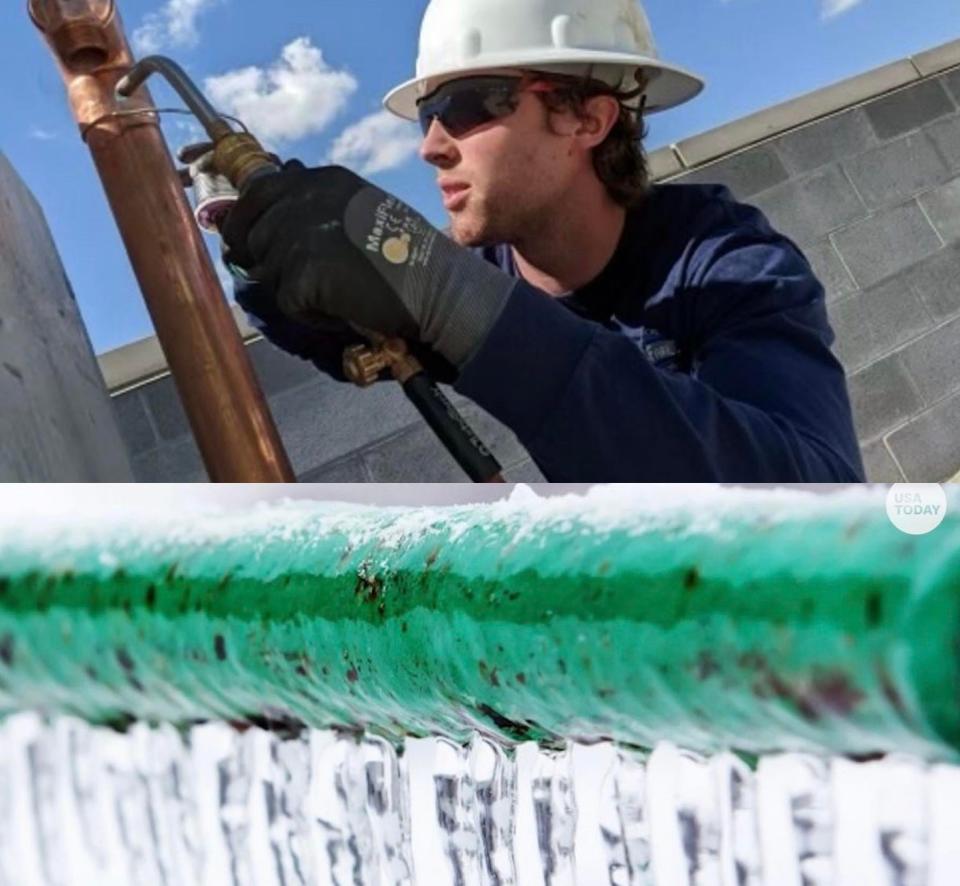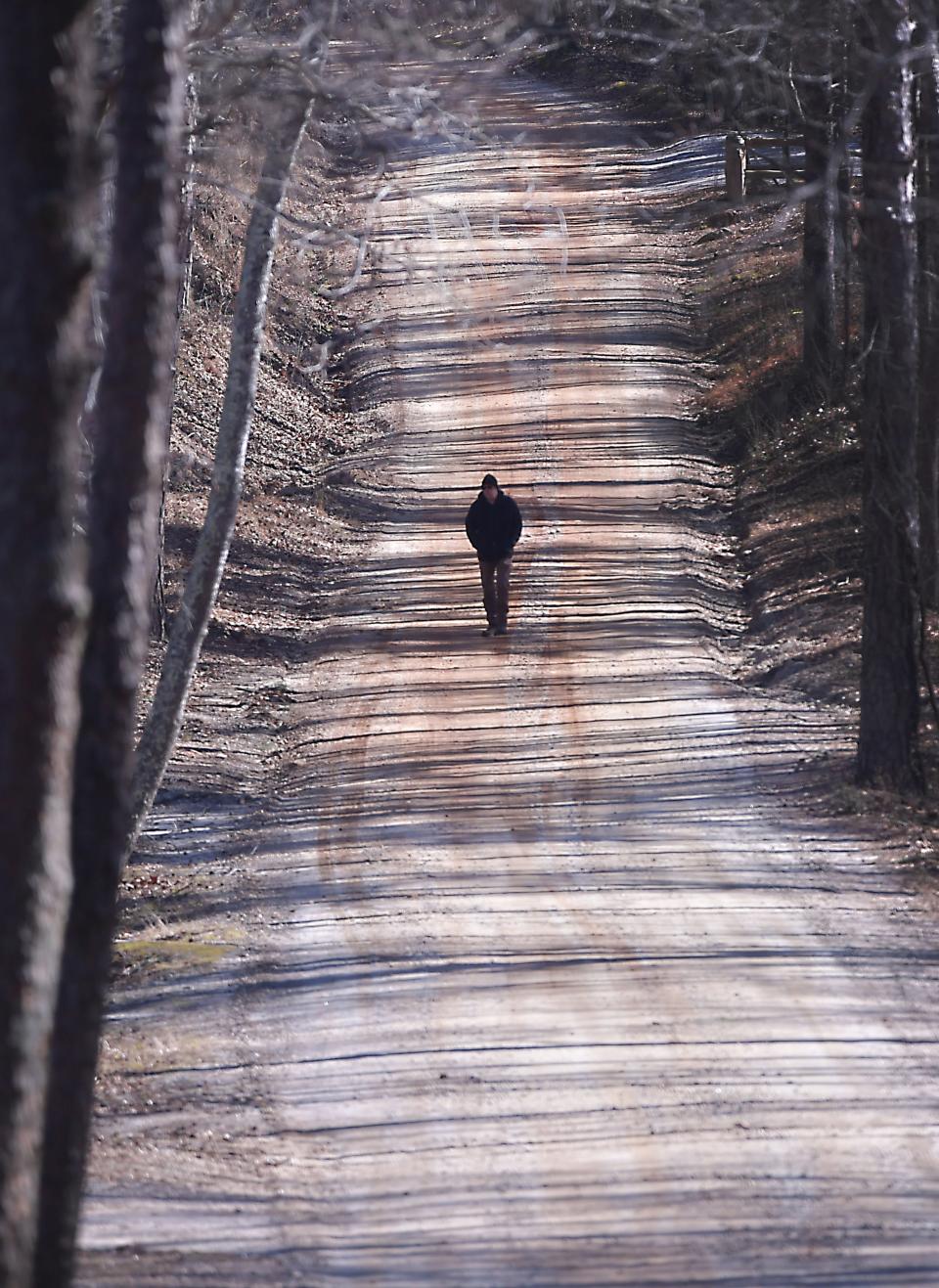Cold front moves into Upstate. Here's how to protect pipes, plants and pets.
Another cold front will move into the Upstate on Friday, Jan. 19 with temperatures dropping as low as 19 degrees during the night.
However, Christiaan Patterson with the National Weather Service at GSP said this week's weather will not bring a chance of snow or flurries.
Residents should still plan to stay safe and warm in these weather conditions.
This weekend's lows will be in the teens, according to the National Weather Service. Friday night's forecast lows will be 19 degrees. Saturday night's forecast lows will be 14 degrees. Sunday night's low will warm up to 21 degrees.
Here are tips for protecting pipelines, plants, pets and more:

How to protect your home, pipes
On social media, Greer Commission of Public Works shared these cold weather tips:
∎ By letting the indoor faucet closet to an outdoor wall drip overnight, you can prevent pipes from freezing.
∎ The pipes most susceptible to freezing are the ones in your home's attic, crawl space and garage. Be sure to insulate these.
∎ If your sinks are on an exterior wall, open kitchen and bathroom doors to allow warm air to circulate. Remove household cleaners kids and pets may be able to reach.
∎ Remove outdoor hoses, covering exposed faucets with faucet covers.

∎ Space heaters should be kept 4 feet from clothes, curtains and furniture. Do not leave heaters unattended.
∎ If daylight is visible through the doorframe, this indicates air leaks. Use caulking and weather stripping to ensure doors and windows are sealed properly.
∎ Instead of turning up the thermostat, wear a sweater or blanket. In the winter, the recommended setting is 68 degrees.
∎ Garage doors should be kept down to preserve energy.
Ways to protect plants from frost
According to the Old Farmer's Almanac, here are the best ways to protect plants from frost:
∎ Cover plants with a blanket or row covers. The material will trap the heat, keeping the plants warm. Drape loosely to allow for air circulation and use bricks, rocks or stakes to secure to the ground. It is recommended for covers to be applied in the early evening as winds calm down. Coverings can be removed the next day when temperatures rise.
∎ For a short cold period, low plantings can be covered with mulch such as straw or leaf mold.
∎ Consider cold frames for your garden, either portable or permanent.
∎ Water well before a frost ― moist soil can hold up to 4 times more heat than dry soil.
∎ Using a thick layer of dried leaves, compost, leaf mold, or straw, mulch root vegetables. If the ground is likely to freeze solid for an extended period, dig up vegetables and store them somewhere cool, dry, and frost-free.
∎ To prevent wet potting soil, place containers onto pot feet to ensure adequate drainage.
∎ To protect soil life such as worm-bug and fungi-happy, keep soil covered.
If it is too cold outside for you, it is too cold for your pets
∎Cracked paws cause discomfort and allow substances to soak in that pets will try to lick later. To prevent this, rub petroleum jelly or other paw protectants onto paws before venturing outside. Wipe down paws, legs, and belly when pets return indoors to remove chemicals and keep salt and snow from accumulating between their toes.
∎ Coming out of the cold and into dry heat can cause irritated skin. For prevention, keep your home humidified and bathe pets as little as possible, as this can remove essential oils, increasing dryness.
∎ No pet should be left outside for long periods if temperatures drop below freezing. The rule of thumb is if it is too cold for you, it is likely too cold for your pet, too.
∎ Do not leave a pet in a cold car for too long. They can get hypothermia and freeze. It is best to leave your pet home if you cannot take them inside of your destination.
∎ Always leash and collar your pet, especially if you do not have a fenced-in yard. Keep collar information updated in case they go missing.
∎ Avoid frozen ponds, lakes and other water. The ice may not support your pet's weight, leading to death.
∎ Keep pets cozy with sweaters, coats and booties, as well as a warm place to sleep.
∎ Quickly clean antifreeze spills. Even small traces can be deadly.
Nina Tran covers trending topics. Reach her via email at ntran@gannett.com
This article originally appeared on Greenville News: Here's how to protect pipes, plants and pets during week's cold front.

